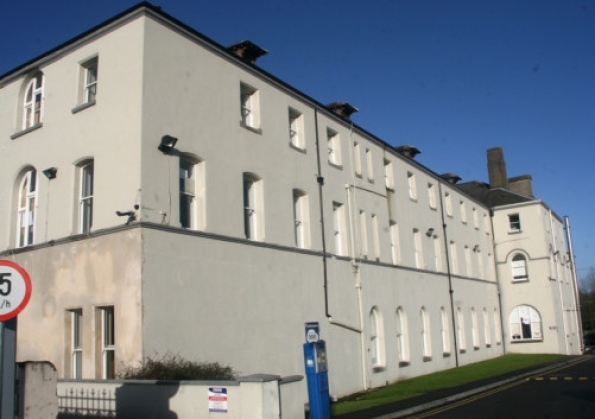Magdalene Survivors Fume over ‘sorry’ Enda
By Mike Dwane
A LIMERICK survivor of the Magdalene laundry has branded Taoiseach Enda Kenny a “disgrace” for his “half-hearted” apology to thousands of Irish women who toiled without pay in the institutions. Margaret Joyce, a native of Ballina who now lives in Castleconnell, spent over five years in the laundry run by the Good Shepherd Sisters on Clare Street, an institution where 93 women remained until their deaths. Margaret’s mother was only 17 when she was born and she remained in the care of her grandmother until she was admitted to the laundry at the age of 11. “I was the youngest one in there and they put me to work from the very first day,” she recalled. Margaret this Wednesday added her voice to the criticism of the Government in the wake of the publication of an interdepartmental report on the laundries. Mr Kenny stopped short of issuing a full apology on behalf of the state - whose institutions referred over a quarter of the women who ended up in the laundries. Nor has the Government committed to compensation for the Magdalene women who worked in a system often compared to the Soviet gulag. “He’s a disgrace. It’s easy to know he or anyone belonging to him was never in there. What he said was half-hearted but the Magdalenes will be fighting very hard for the redress. I never got one shilling for the whole time I was in there,” said Margaret. While she remembered cold, damp conditions and long working days in the Limerick laundry, Margaret said she never saw physical abuse of the women and girls. Other survivors, however, have been quick to criticise the fact that the committee chaired by Dr Martin McAleese found little evidence of physical abuse of the Magdalenes, despite hundreds of interviews with survivors and others familiar with the institutions. A comprehensive trawl of documents in Limerick included records kept by the Good Shepherd Sisters themselves, the Diocese of Limerick, Henry Street and Roxboro gardai, Limerick District and Circuit Courts and the local health authorities. The Magdalenes average stay in Limerick was for longer than two and a half years while the longest stay in the convent records stretched to 44 years. The report crucially captures the role of various arms of the state in having the women referred there. In the days before the formation of the Probation Service, religious societies such as the Legion of Mary’s Limerick branch were recognised in law as having an equivalent role. Over 16% of all referrals to the Magdalene Laundry in Galway, for example, were made by the Limerick branch of the Legion of Mary. In one case highlighted in the McAleese Report, a 17-year-old girl was given two months probation by a judge on condition she reside at the Good Shepherd convent for that period. But convent records showed she didn’t leave - being transferred to another Magdalene Laundry in Galway - until two years later. The order has in the past insisted that women were not held there against their will. Records show the Limerick laundry was home to several women convicted of murder and manslaughter - most often involving cases of infanticide. A case from 1942 showed the chaplain in Mountjoy Prison had persuaded the Good Shepherd Sisters in Limerick to accept a woman who had been sentenced to death - later commuted to life in prison - for murdering another adult female 18 years earlier. She had remained for up to 30 years after which, “almost blind”, she was transferred to a Limerick hospital. The McAleese Report disputes that the laundries were profitable enterprises for the religious congregations, something survivors groups are vigorously challenging. In response to a Government request for information in 1970, the Limerick Health Authority wrote back that “the convent was noted in Limerick city not for its wealth but for its poverty; one other consultant has frequently informed the Health Authority that the sisters are in very poor circumstances indeed”. In response to the report, The Good Shepherd Sisters stated: “we were part of the system and the culture of the time. We acted in good faith providing a refuge and we sincerely regret that women could have experienced hurt and hardship during their time with us. It saddens us deeply to hear that time spent with us, often as part of a wider difficult experience, has had such a traumatic impact on the lives of these women”. Fianna Fail justice spokesman Deputy Niall Collins, meanwhile, has called for a full apology from the government and “a commitment to redress”. “I am surprised that having done the right thing in setting up this investigation, the government is now holding back and refusing to give these women the straightforward and unreserved apology they need and deserve,” said the Limerick TD.
|
.
Any original material on these pages is copyright © BishopAccountability.org 2004. Reproduce freely with attribution.
